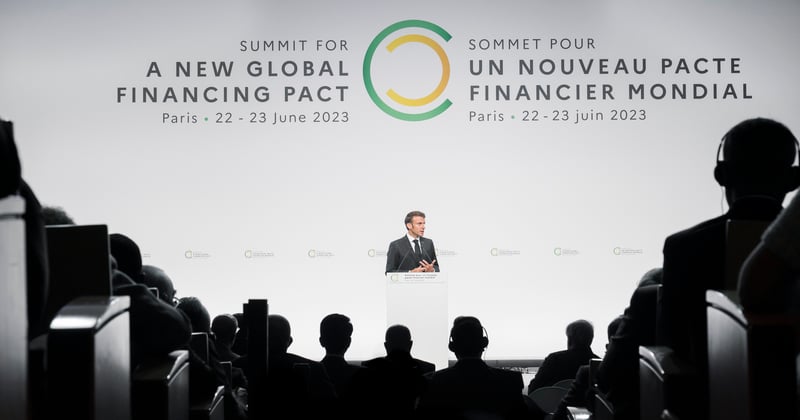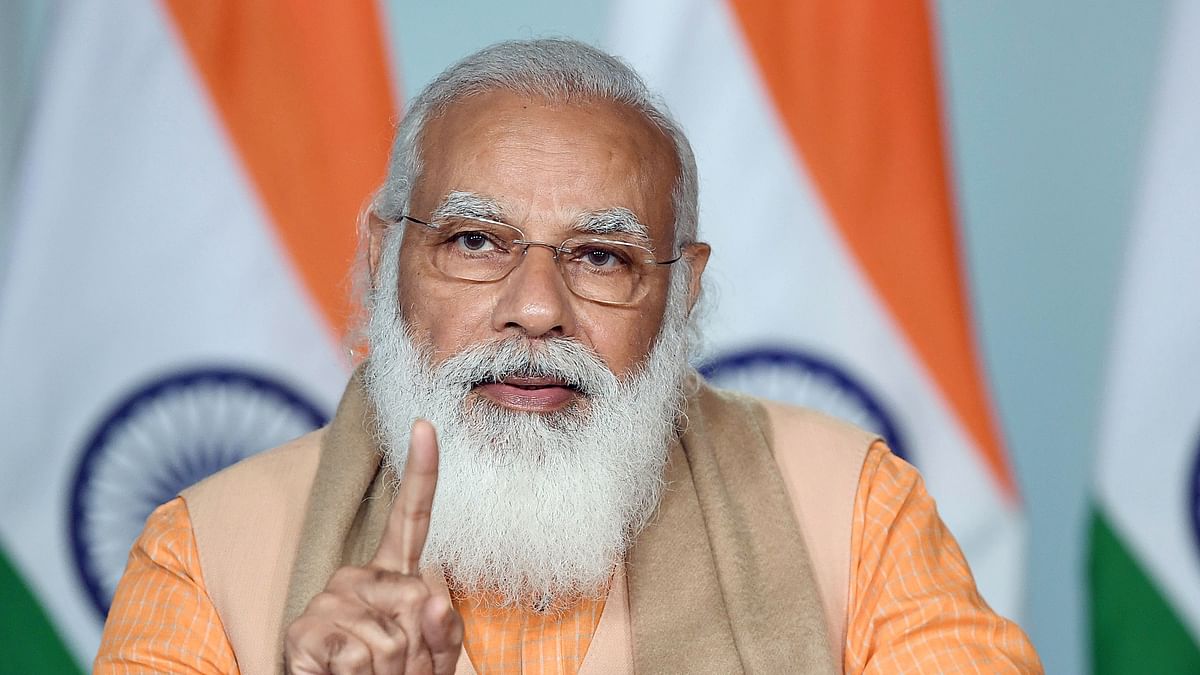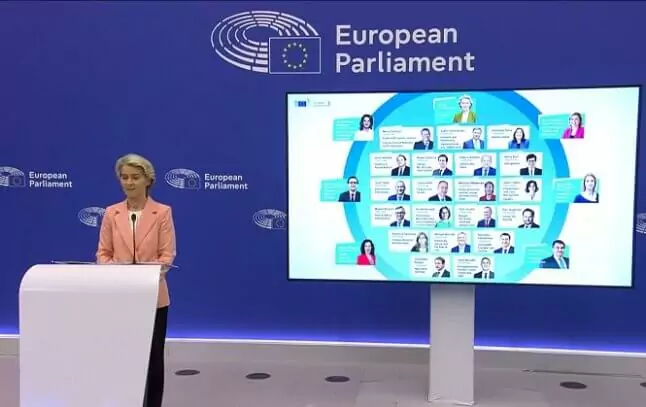Was it worth traveling to Paris for the 22-23 June Summit?

A brief assessment of the summit for a new global financial pact (22-23 June, Paris)
Once again the French President Emmanuel Macron managed, against many expectations, to line up a remarkable number of personalities, with a broad participation of Heads of State, IOs and representatives of civil society, in the Summit for a New Global Financing Pact organised on 22-23 June in Paris.
This summit is part of the efforts begun in 2021 at the Paris Peace Forum to build a new international consensus (known as the Paris Consensus) between the North and the South, to replace the Washington Consensus and reform the Bretton Woods institutions created in 1945 by a small number of countries at a time when the fight against climate change did not exist.
Over two days, some fifty high-level panels addressed a wide range of development challenges facing the countries of the Global South, from food security to energy transition and the development of digital infrastructures. Many coalitions, like the Finance in Common (FiCS) that gathers 550 Public Development Banks, GFANZ, OPSWF or NGFS, also organized meetings during the Summit.
Although no formal declaration (or pact) was adopted at the end of the summit, numerous commitments were reiterated to resolve the dilemma between development and ecological transition, like the $100 billion from COP21, the $100 billion in SDRs from the Summit on Financing African Economies organized in Paris in 2021, or the debt restructuring of Zambia after South Soudan in 2021.
The fact remains that, over and above the broad participation, countries from the Global south seem to have grown tired of participating in these numerous summits, which seem to have yielded insufficient results in their eyes:
o South African President Cyril Ramaphosa heavily questioned the concrete results of these repeated conferences during the closing ceremony;
o Egyptian President Abdel Fattah Al-Sissi underlined the failure of developed countries to commit $100 billion a year to the energy transition in the South (a commitment also evoked by the Chinese Prime Minister);
o Ghanaian President Nana Akufo-Addo denounced the fact that the $100 billion in SDRs promised in Paris in 2021 had not been released (which President Macron later denied, insisting it had been).
We heard a very strong plea from Brazilian President Lula Da Silva to reduce global inequalities, and an all-out attack on the dominance of the dollar, just a few steps away from US Treasury Secretary Janet Yellen, and who set a date for the BRICS summit at the end of August, while calling for it to be expanded to include other heads of state from the South.
Quite striking also the divergence over Russia, which was widely condemned by the countries of the North (Chancellor Olaf Scholz in particular), with no particular follow-up from the countries of the South, making Vladimir Putin, who is to participate in the BRICS summit in August, something of a ghost guest at the summit.
Finally, there was also a divergence in approach: very political and committed for the countries of the South (Lula, Ramaphosa, Al Sissi), very technical and somewhat cold for the countries of the North (Macron, Scholz, Yellen, Georgieva etc.).
In the end, this summit is naturally based on a laudable intention – that of reducing inequalities between the North and the South without sacrificing the climate agenda – and the result is formally impressive given the level of participation and number of heads of state involved and the quality of the 40 side-events organized on all aspects of the development agenda, with numerous representatives of civil society.
At the same time, more and more vocal voices are being heard questioning the real usefulness of this kind of meeting, paradoxically marking a widening gap between North and South rather than a rapprochement, with many denouncing the absence of real results or unfulfilled commitments. Particularly striking in this respect is the public commitment to an anti-Western, even anti-American agenda at the BRICS summit in South Africa next August.
Apart from the next Paris Peace Forum (11-12 November) and the Italian G7 in 2024, the next major follow-up events to this summit will be held in countries of the Global South – the G20 in New Delhi (September 9-10), the annual meetings of the WB and IMF in Marrakesh (October 9-15), the COP28 in Dubai (November 30), the Brazilian G20 in 2024. They will certainly provide some opportunities to reconcile these approaches. But it is the increasingly assertive countries of the South that will be setting the agenda.




